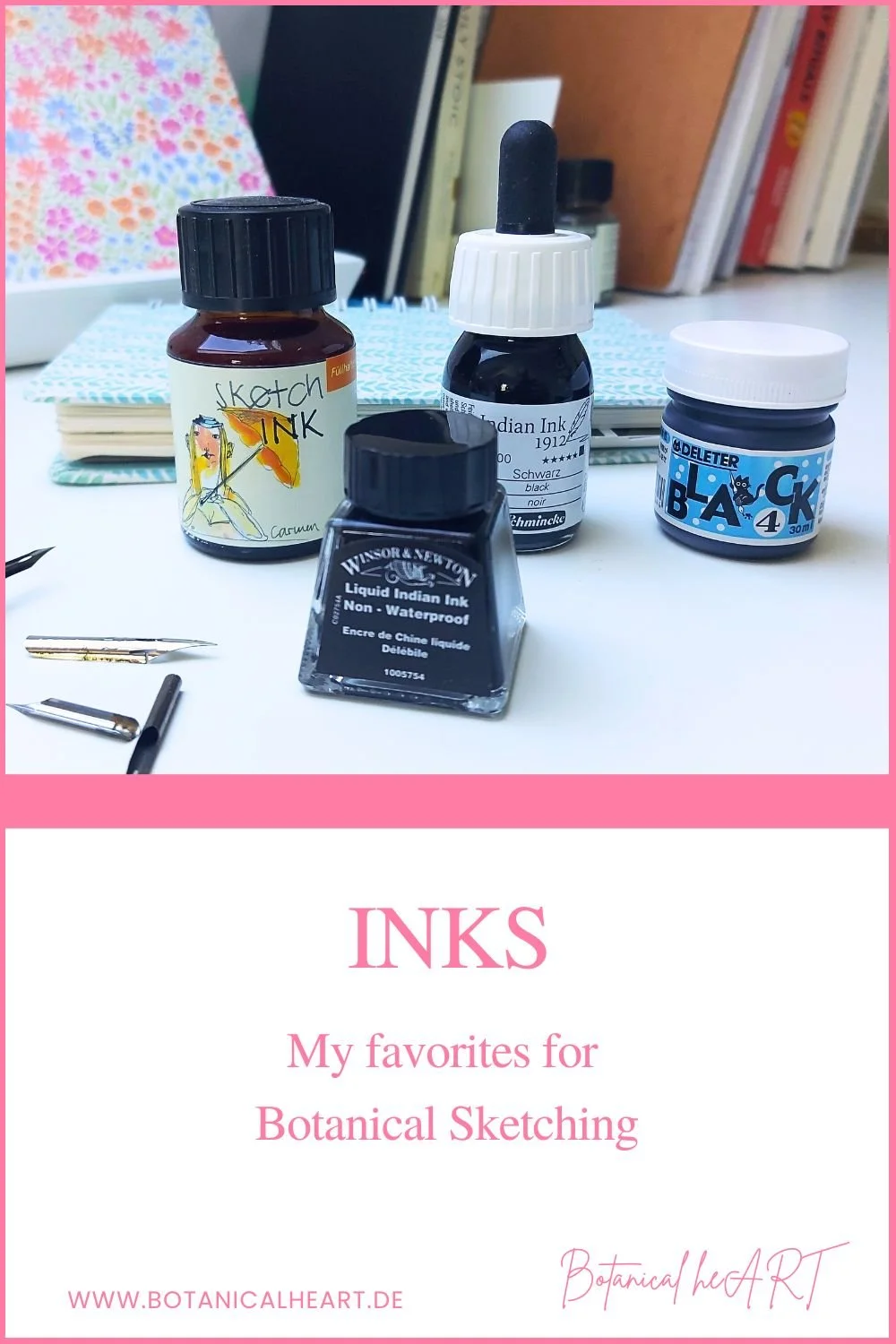Nibs & Nib Holders for Sketching
If you've ever worked with a dip pen, you know the feeling: not every nib fits your hand right away.
Some feel too stiff, others scratch the paper, and then there's that one nib that just flows — that's what we're talking about today.
A good tool can make all the difference in your drawing process.
Especially in botanical illustration, where the focus is often on delicate, calm lines, it’s worth taking a closer look at dip pens and nibs.
In this post, I’ll share which combinations work well for me — and what to pay attention to when choosing a duo that suits you.
My Nib Holders: Practical, Comfortable & Reliable
Over time, many nib holders have found their way into my pencil case, but two have truly stood the test: the Tachikawa T-36 and the T-40.
Why I love them?
Rubber grip – feels comfortable, even during longer drawing sessions
Protective cap (T-40) – perfect for travel or if you like keeping your desk tidy
Universal nib mount – fits many standard nibs, whether small or large
And let’s be honest: with their wooden body and colorful rubber grip, these Tachikawa holders are simply beautiful to look at — a little design joy for your sketching table.
Favorite Nibs – And What Makes Them Special
Not every nib suits every hand or drawing style. Some take a little practice, others work like a charm right from the start.
Here are my current favorites — all tried and tested, and highly recommended for botanical drawing:
Nikko G
Flexible, yet easy to control
Great for fine, even lines, but also thicker ones
Perfect for beginners easing into structured line work
Zebra Maru (Mapping Nib)
Super fine – ideal for delicate details like leaf veins or slender stems
Makes marks very precisely, almost like a technical pen, but with the charm of hand-drawing
More Nib Recommendations for Beginners
If you’re just starting out and want to try a few nibs, here are some solid options:
Zebra G – well-balanced, great for practicing, quite similar to Nikko G
Brause 513 and 511 – not too flexible, especially good for beginners
Leonardt Hiro 6H – a bit firmer and has similarities with Zebra Maru
It´s the same as with all drawing tools, you have to find out what suits you best.
Don´t worry too much about which one you should start out with.





Sketchbook Update - What am I currently using?
Lately, I’ve returned to doing regular drawing exercises – often in a relaxed setting, sometimes in a café.
Right now, I’m reaching for the Nikko G a lot.
It’s a fantastic alternative to the Zebra G: similar in feel, but slightly firmer, which can be especially helpful for beginners.
It’s working so well for me because I’m currently focusing on very fine dots and delicate lines – and the Nikko G holds a good amount of color, which is a big plus.
Instead of using traditional ink, I’ve been experimenting with liquid watercolors – and surprisingly, it works really well!
I do my exercises in the Clairefontaine Fontaine watercolor sketchbook – the paper is smooth, holds up beautifully, and lets the colors shine.
Conclusion: Drawing with Nib and Nib Holder Is Simpler Than It Seems
Start with a reliable holder (my favorites: Tachikawa T-36 or T-40).
Choose 2–3 nibs to test – each one has its own personality.
Pay attention to how they feel in your hand:
Do you have control over the line variation?
Does it scratch?
Do the lines feel smooth and natural?
Have a wonderful time exploring this great drawing technique!
Pin these articles on Pinterest!





